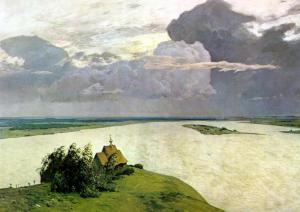Note February 2016. I wrote this in June 2012 as a suggestion to a website on what to do to counter the endless anti-Russia propaganda. In many ways, it summarises the theme of everything I have written since the early 1990s: the end of the Cold War gave us an opportunity to integrate Russia and the other USSR successor states into the winners’ circle. We failed to do that and, thereby, have set up the conditions for what we see today. And, there was no reason to do it. Moscow is now trying to counter the propaganda as I wished it would then; with some success, given the hysteria in the West about its loss of narrative control.
My concern is that, as a result of a mixture of reflexive hostility, sloth, lazy re-typing of memes and the campaigns of vengeful people we, the “West”, are gradually turning Russia into an enemy. And there is absolutely no reason for this: Russia needs a quiet life so that it can repair the ravages of 70 years of communism. In short, this behaviour is weakening our security: Russia is not and never will be a negligible power; we gain nothing and lose much by making it into an enemy.
In 1814, after 20 years of war, the settlement was made by the 5 “Great Powers” – Britain, Russia, Austria, Prussia and… France. France was included because it was understood that Revolutionary and Napoleonic France was not the only possible France; that France was not about to disappear from the map; that it was better to bring it into the winners’ circle than freeze it out. In 1945 the Western Allies incorporated the losers (Germany west and Japan – and Italy, which had switched sides just in time) into the winners’ circle. We do not seriously worry about a 4th Reich or 2nd East Asian Co-Prosperity Sphere today.
But the 1919 settlement punished Germany and tried to keep it down forever. The combination of harsh restrictions and feeble enforcement contributed to a second worse war.
The lesson of these two successful post-war settlements and the disastrous failure of the third seems obvious: incorporate the losers into the winners.
When the Cold War ended, the “West” did not follow either the 1814 or the 1945 examples. The “original sin” was the expansion of NATO in a manner that made it obvious that anyone could join. Except Russia. A door was slammed in Russia’s face. At the time George Kennan, the famous Mr X of 1946, warned us of the consequences of this “light-hearted” decision. We see the fruits today. My fear is now, and has been from the start, that we are repeating the disaster of 1919 and not the wisdom of 1814 or 1945.
I am afraid that I have no bright ideas about overcoming the biased, incompetent, hostile and often knowingly false coverage of Russia in the Western MSM. On the bright side, the Old Media is dying and had already lost much of its power to define what constitutes “The News”. But the New Media is still weak and, in any case, will never have the near-monopoly of “News” that the Old Media had.
So, given the terrible state of coverage of Russia in the West, we have to ask the traditional questions: Кто виноват? and Что делать?
Who’s guilty? Well there are those for whom Russia is and always will be the Eternal Enemy. And there are those who have a personal interest in denigrating Russia. There’s nothing that we can do to change their minds: we cannot reason them out of ideas they were not reasoned into. These people will die off eventually. As to the others, the imitators, the lazy, perhaps we can.
What to do? All I can suggest is to keep chewing away at the memes – but it always takes more effort to defeat a meme than it does to re-type it. It’s like Hercules and the Hydra: as soon as you destroy one, another two are created.
One suggestion is to create a website – a sort of reference library – with pieces that counter some of the memes. (Although many of them cannot be countered by mere facts). I expect no great effect from this but it would at least make our jobs easier if we had a single source to point to.
Finally: I do wish Moscow would put more effort into countering this. I sometimes think that Russians are too proud to engage in PR. But they should.
